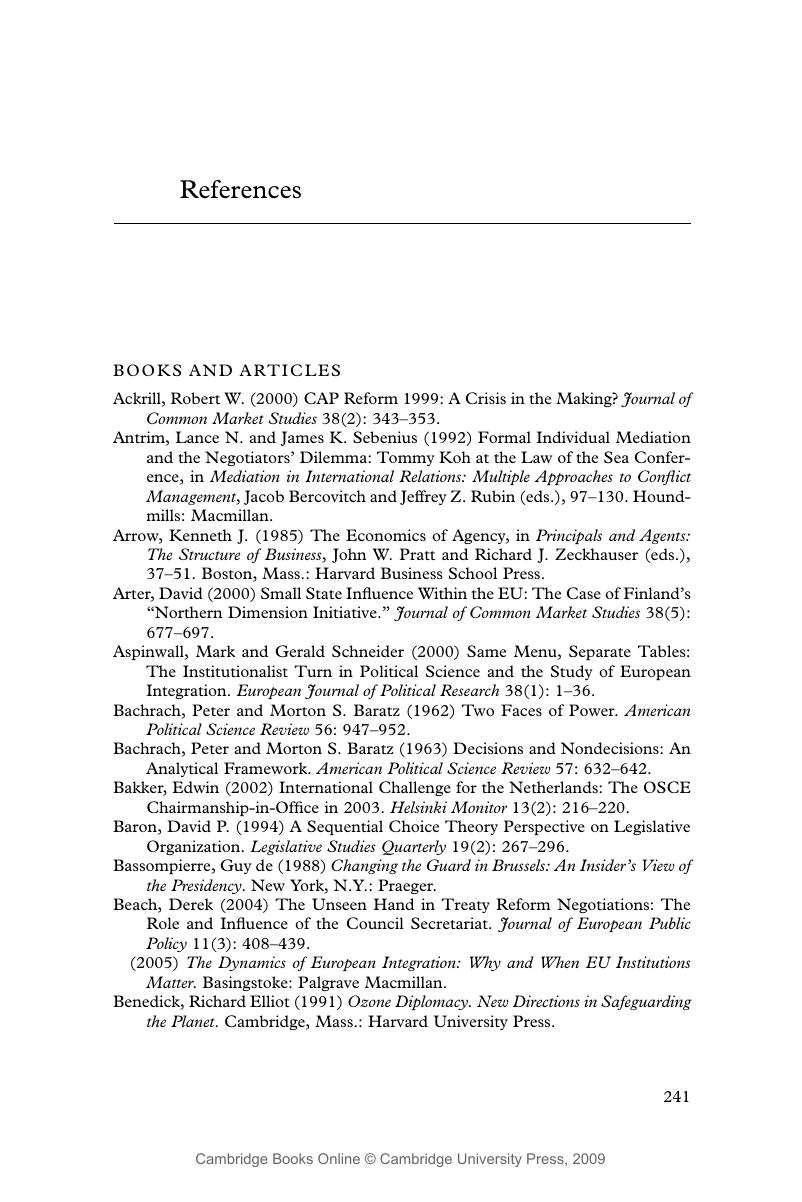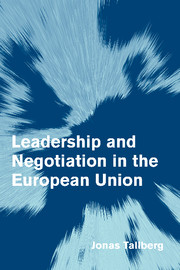Book contents
- Frontmatter
- Contents
- List of illustrations
- Acknowledgments
- List of abbreviations
- 1 Introduction
- 2 Formal leadership: a rational institutionalist theory
- 3 The institutional development of the EU Presidency: a search for efficient cooperation
- 4 The EU Presidency as agenda manager: shaping political priorities
- 5 The EU Presidency as broker: constructing intergovernmental bargains
- 6 The EU Presidency as representative: negotiating on behalf of others
- 7 Comparative perspectives: formal leadership in multilateral negotiations
- 8 Conclusion
- Appendix
- References
- Index
- References
References
Published online by Cambridge University Press: 22 September 2009
- Frontmatter
- Contents
- List of illustrations
- Acknowledgments
- List of abbreviations
- 1 Introduction
- 2 Formal leadership: a rational institutionalist theory
- 3 The institutional development of the EU Presidency: a search for efficient cooperation
- 4 The EU Presidency as agenda manager: shaping political priorities
- 5 The EU Presidency as broker: constructing intergovernmental bargains
- 6 The EU Presidency as representative: negotiating on behalf of others
- 7 Comparative perspectives: formal leadership in multilateral negotiations
- 8 Conclusion
- Appendix
- References
- Index
- References
Summary

- Type
- Chapter
- Information
- Leadership and Negotiation in the European Union , pp. 241 - 260Publisher: Cambridge University PressPrint publication year: 2006



